Spring 注解编程之模式注解
Spring 框架中有很多可用的注解,其中有一类注解称模式注解(Stereotype Annotations),包括 @Component, @Service,@Controller,@Repository 等。只要在相应的类上标注这些注解,就能成为 Spring 中组件(Bean)。
需要配置开启自动扫描。如在 XML 中配置 <context:component-scan base-package="xxx.xxx.xx"/>` 或使用注解 @ComponentScan。
从最终的效果上来看,@Component, @Service,@Controller,@Repository 起到的作用完全一样,那为何还需要多个不同的注解?
从官方 wiki 我们可以看到原因。
A stereotype annotation is an annotation that is used to declare the role that a component plays within the application. For example, the
@Repositoryannotation in the Spring Framework is a marker for any class that fulfills the role or stereotype of a repository (also known as Data Access Object or DAO).
不同的模式注解虽然功能相同,但是代表含义却不同。
标注@Controller 注解,这类组件就可以表示为 WEB 控制层 ,处理各种 HTTP 交互。标注 @Service 可以表示为内部服务层 ,处理内部服务各种逻辑。而 @Repository 可以代表示为数据控制层,代表数据库增删改查动作。
这样一来不同模式注解带来了不同的含义,清晰将服务进行分层。
除了上面的作用,特定的模式注解,Spring 可能会在未来增加额外的功能语义。如现在 @Repository 注解,可以增加异常的自动转换功能。
所以,对于分层服务最好使用各自特定语义的模式注解,如 WEB 层就使用 @Controller注解。
模式注解原理
在 Spring 中任何标注 @Component 的组件都可以成为扫描的候选对象。另外任何使用 @Component 标注的注解,如 @Service,当其标注组件时,也能被当做扫描的候选对象。。
@Componentis a generic stereotype for any Spring-managed component. Any component annotated with@Componentis a candidate for component scanning. Similarly, any component annotated with an annotation that is itself meta-annotated with@Componentis also a candidate for component scanning. For example,@Serviceis meta-annotated with@Component.
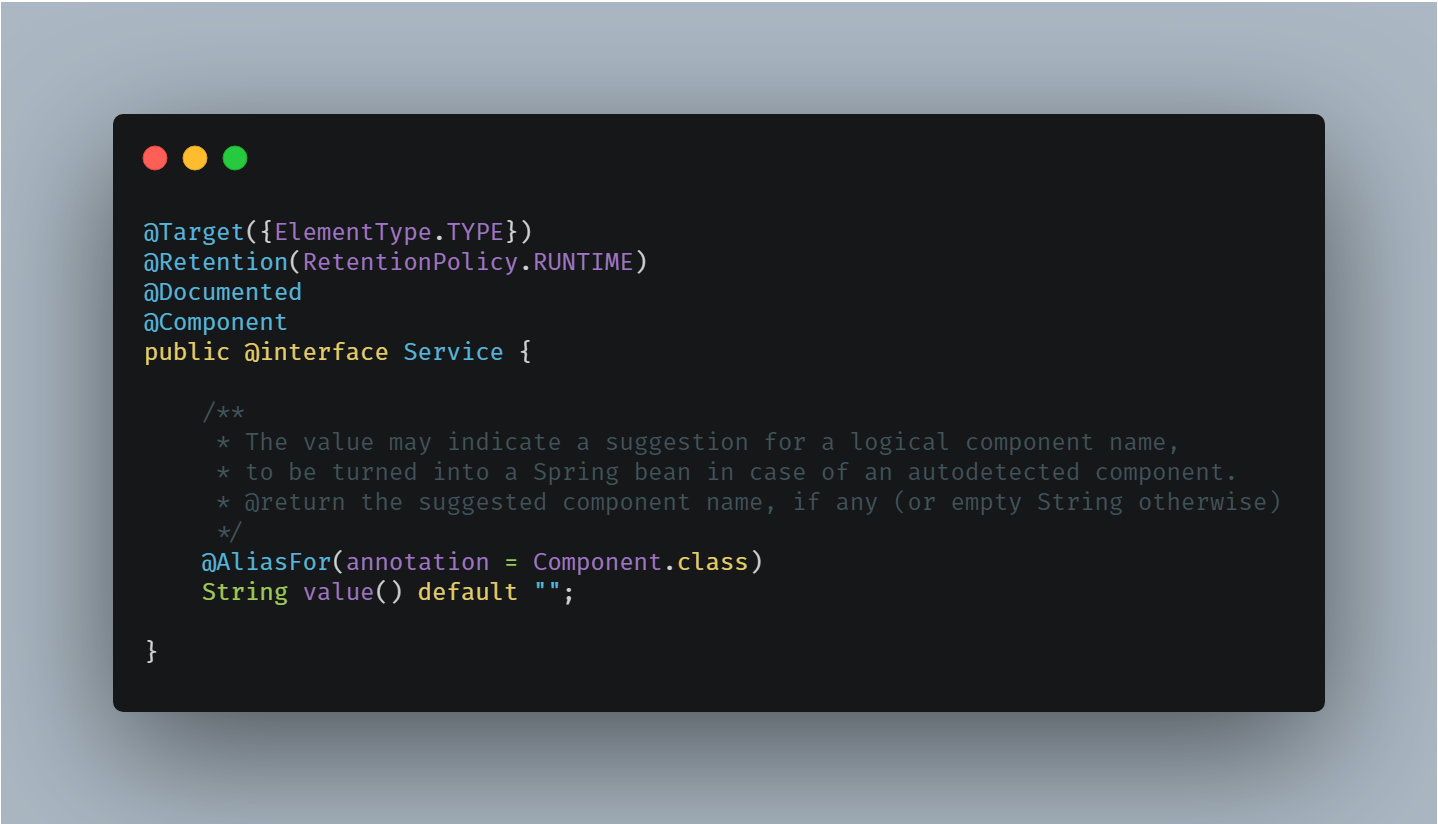
如果想使自定义的注解也能如 @Service 注解功能一样,只要在自定义注解上标注 @Component 就可以。
AnnotationMetadata
从上面文档看出只要在类上存在 @Component注解,即使存在于注解的注解上,Spring 都将能其成为候选组件。
注解上的注解 Spring 将其定义为元注解(meta-annotation),如
@Component标注在@Service上,@Component就被称作为元注解。后面我们就将注解的注解称为元注解。
A meta-annotation is an annotation that is declared on another annotation. An annotation is therefore meta-annotated if it is annotated with another annotation. For example, any annotation that is declared to be documented is meta-annotated with
@Documentedfrom thejava.lang.annotationpackage.
那么对于一个类是否可以成为 Spring 组件,需要判断这个类是否包含 @Component 注解,或者类上元注解中是否包含 @Component。
在 Spring 中可以通过 MetadataReader 获取 ClassMetadata 以及 AnnotationMetadata,然后获取相应元数据。
ClassMetadata 可以获取类的各种元数据,比如类名,接口等。
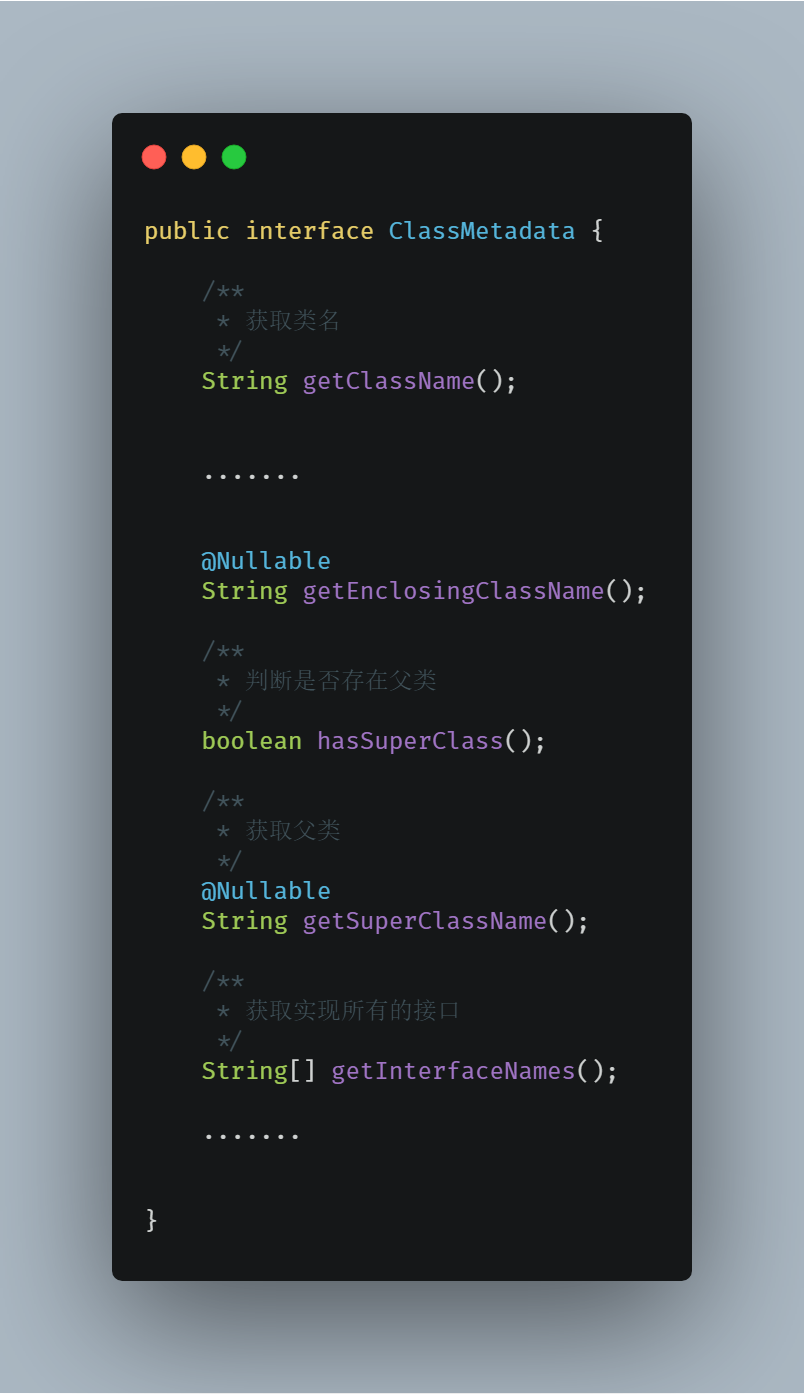
而 AnnotationMetadata 可以获取当前类上注解的元数据,如注解名字,以及元注解信息等。
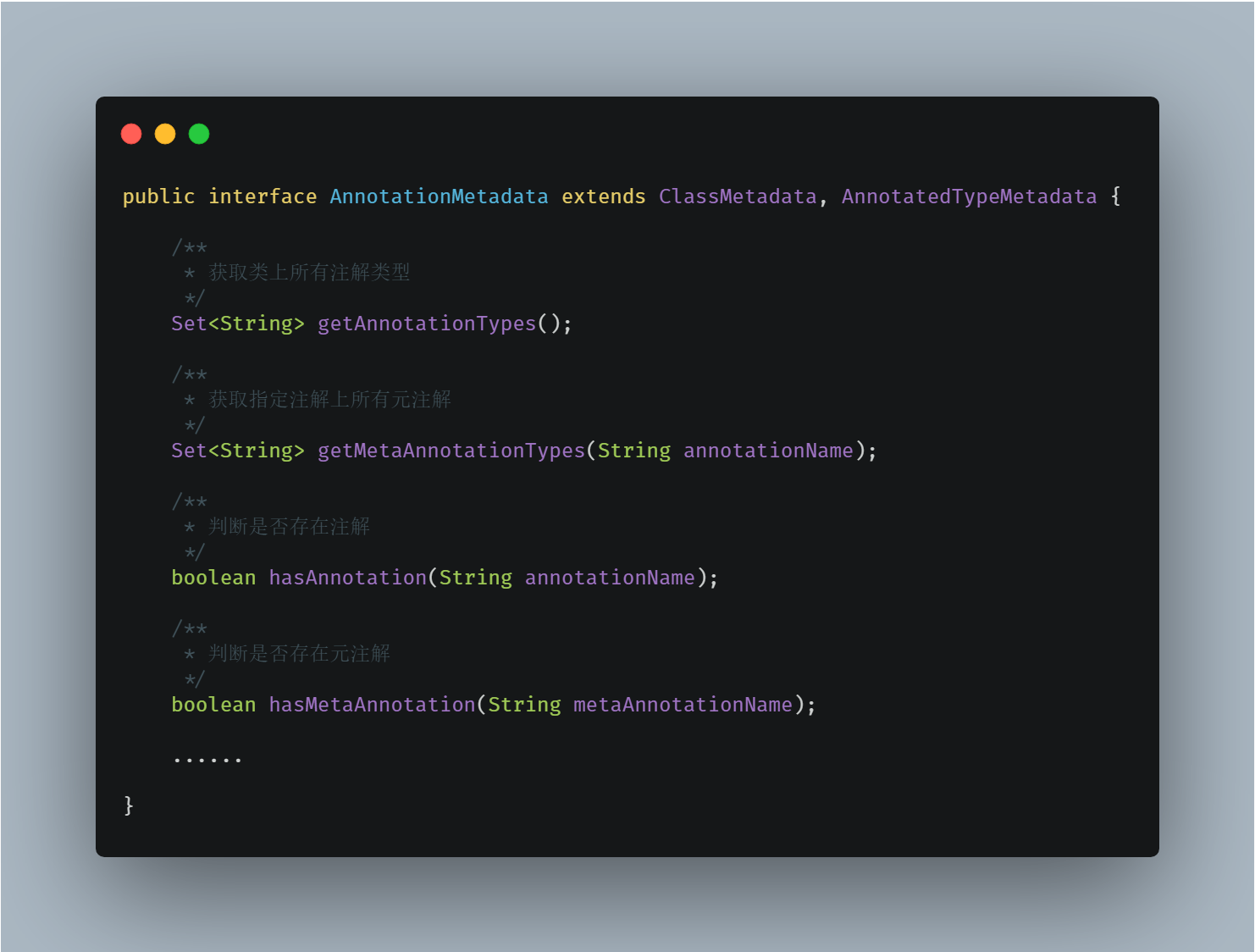
所以只要获取到 AnnotationMetadata,就可以判断是否存在 @Component。判断方式如下

获取 AnnotationMetadata
这里我们从 XML 配置开启扫描开始讲起。
<context:component-scan base-package="xxx.xxx.xx"/>
首先在 META-INF 下查找 spring.handles 文件。
不明白小伙伴们可以查看上一篇文章 缘起 Dubbo ,讲讲 Spring XML Schema 扩展机制

context 标签在 ContextNamespaceHandler 注册 XML 解析器。在 ContextNamespaceHandler中其使用了 ComponentScanBeanDefinitionParser真正解析 XML。

在 ComponentScanBeanDefinitionParser#parse 方法中,首先获取 XML 中配置 base-package属性,获取扫描的范围,然后调用 ClassPathBeanDefinitionScanner#doScan 获取 base-package 所有 BeanDefinition。
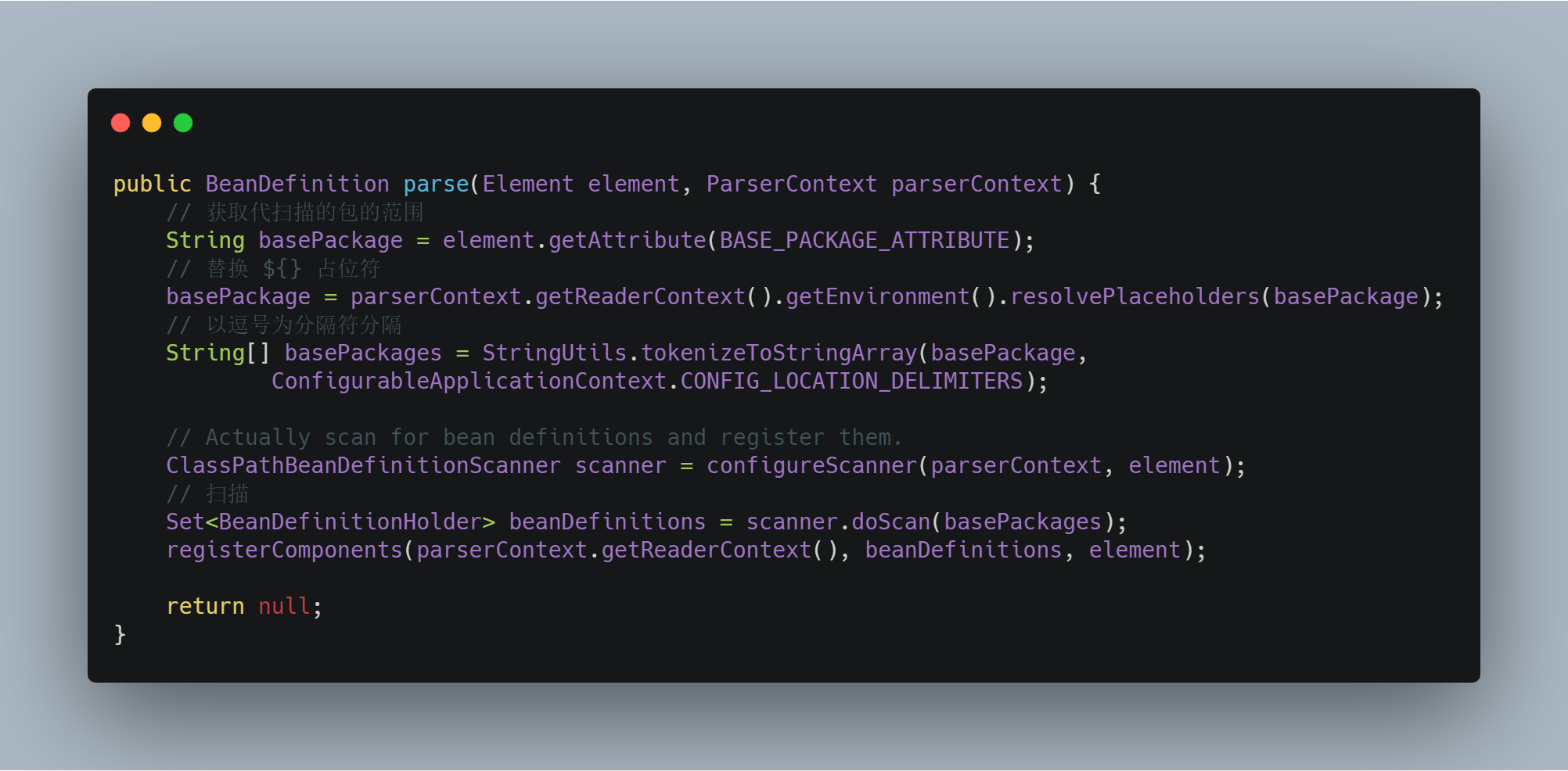
在 doScan 方法中最终会调用ClassPathScanningCandidateComponentProvider#scanCandidateComponents 获取扫描范围内所有 BeanDefinition
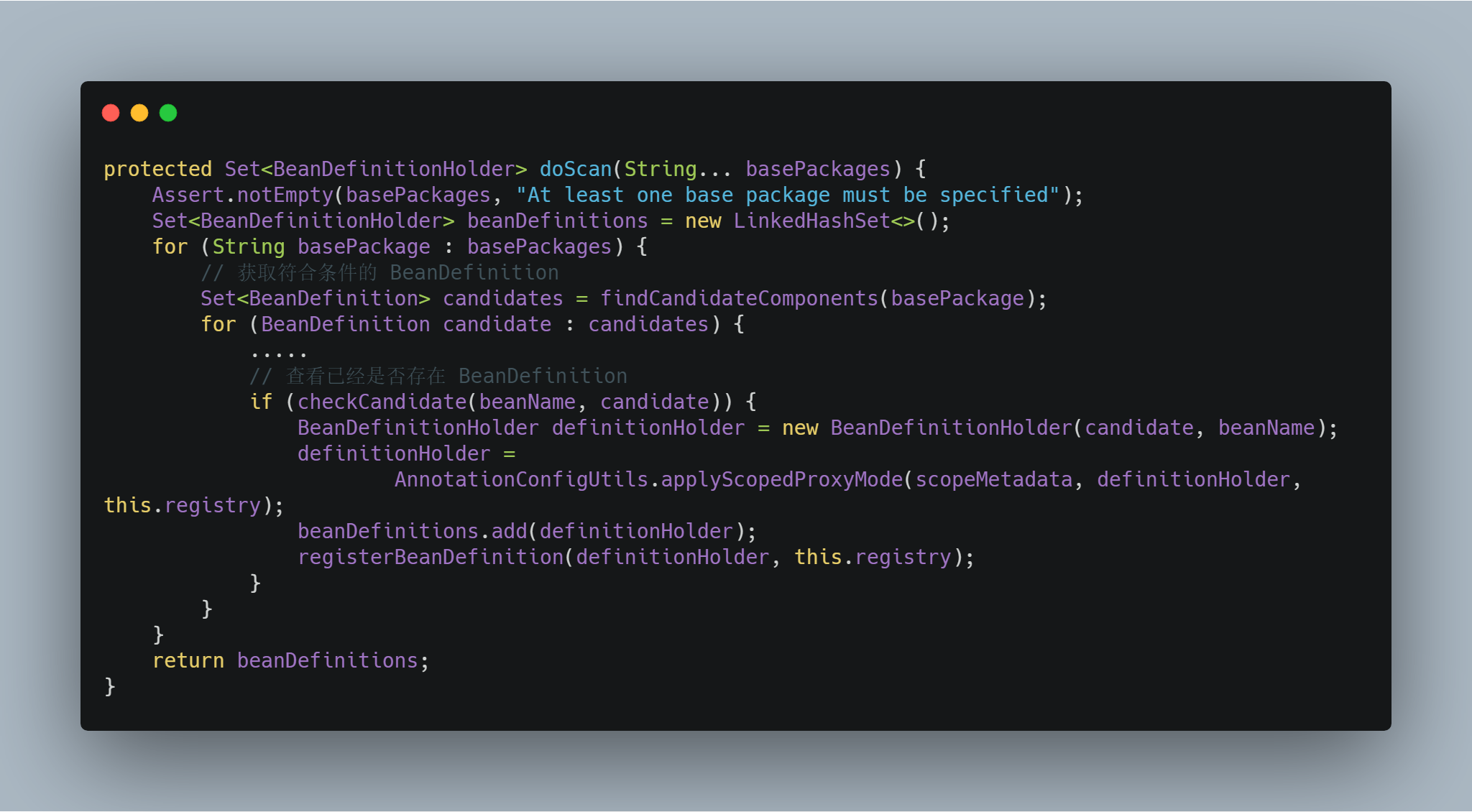
在 scanCandidateComponents 中首先获取扫描包范围内资源对象,然后迭代从可读取资源对象中MetadataReaderFactory#getMetadataReader(resource)获取MetadataReader` 对象。
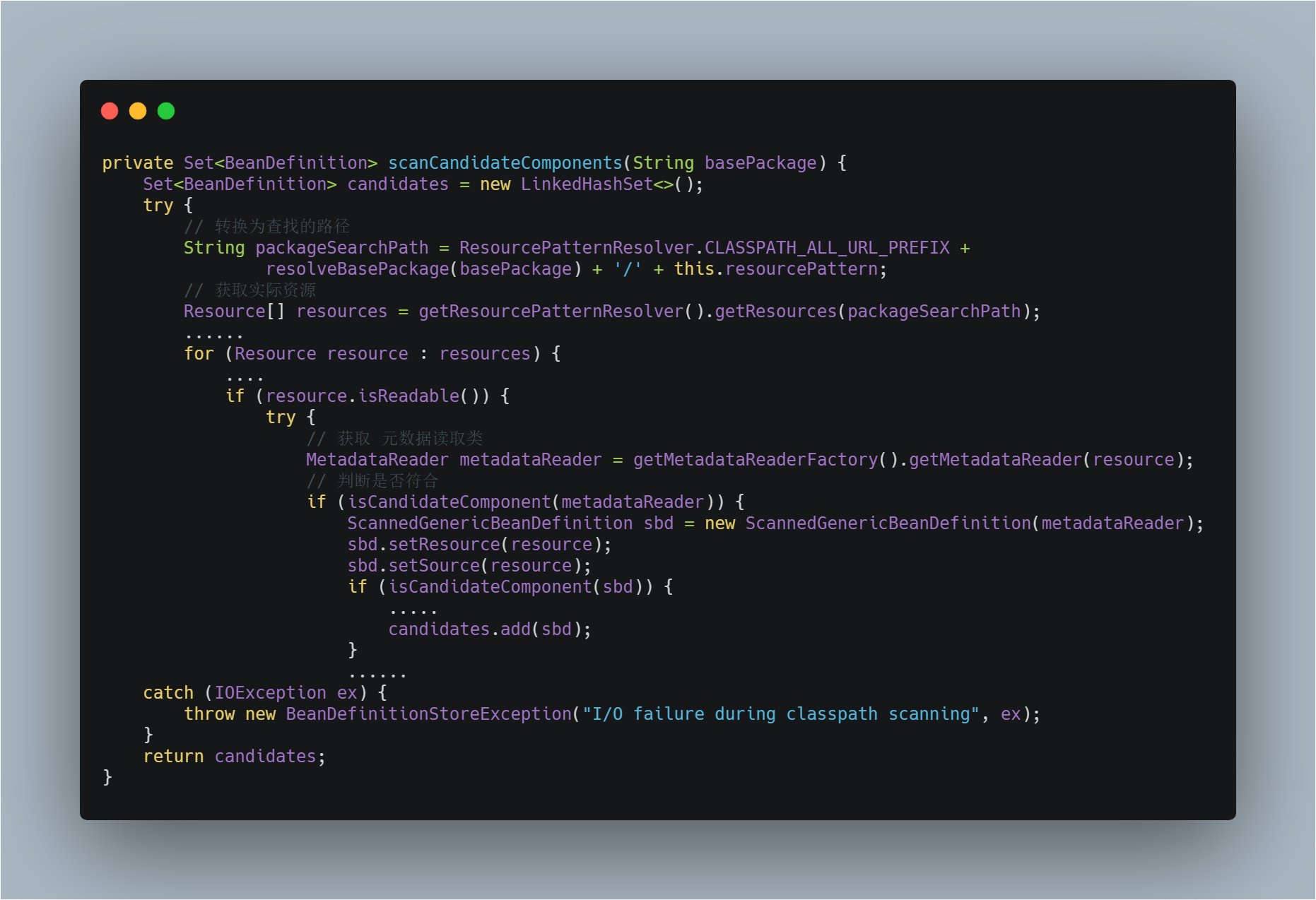
上文已经讲到 MetadataReader 对象作用,这里查看如何使用MetadataReader 进行判断。
筛选组件
在 isCandidateComponent方法中将会传入 MetadataReader 到TypeFilter#match进行判断。
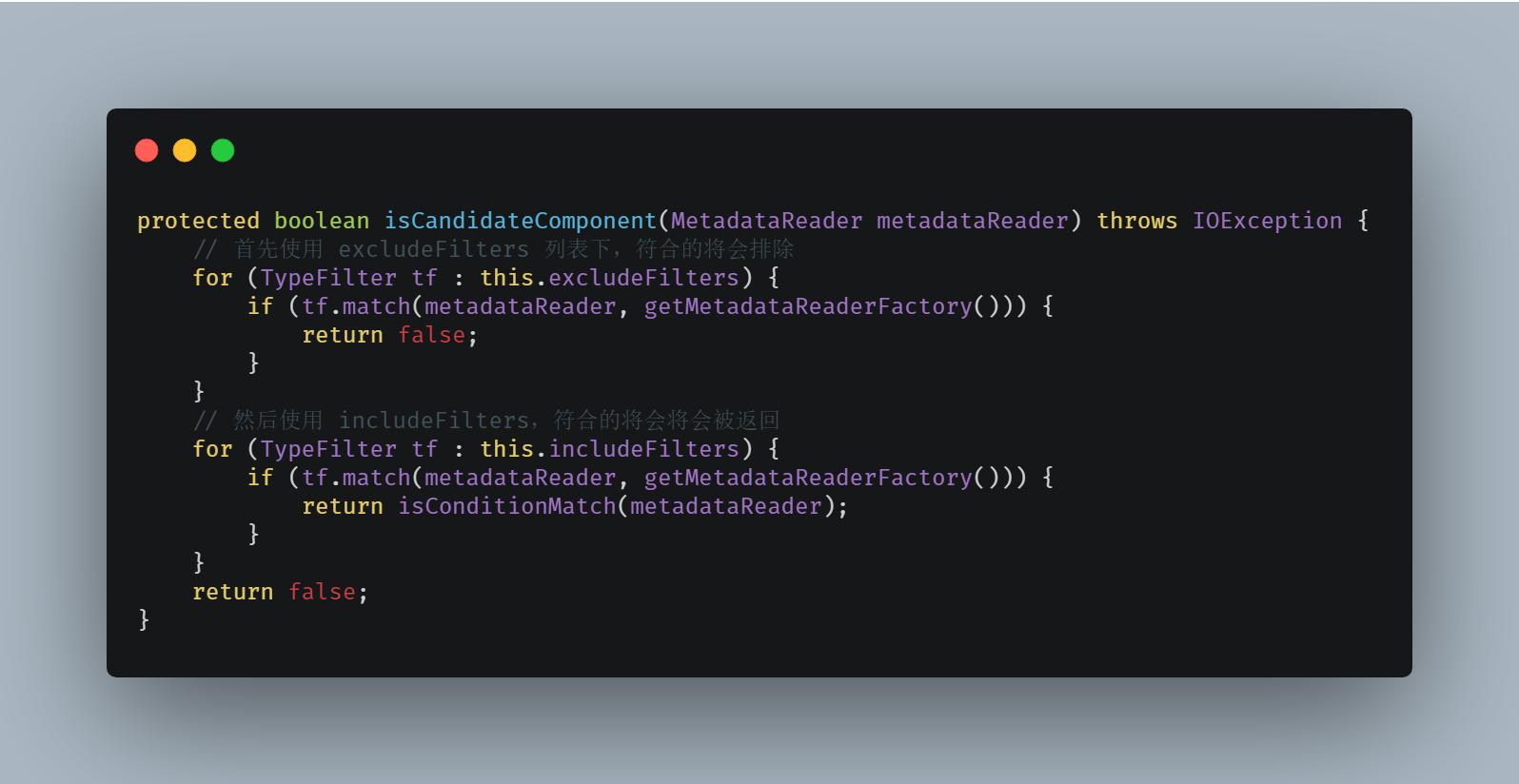
条件的判断主要使用 excludeFilters与 includeFilters 两个字段决定。那两个字段从何处生成?
原来在ComponentScanBeanDefinitionParser中调用 ClassPathBeanDefinitionScanner构造方法时,默认传入 useDefaultFilters=true。
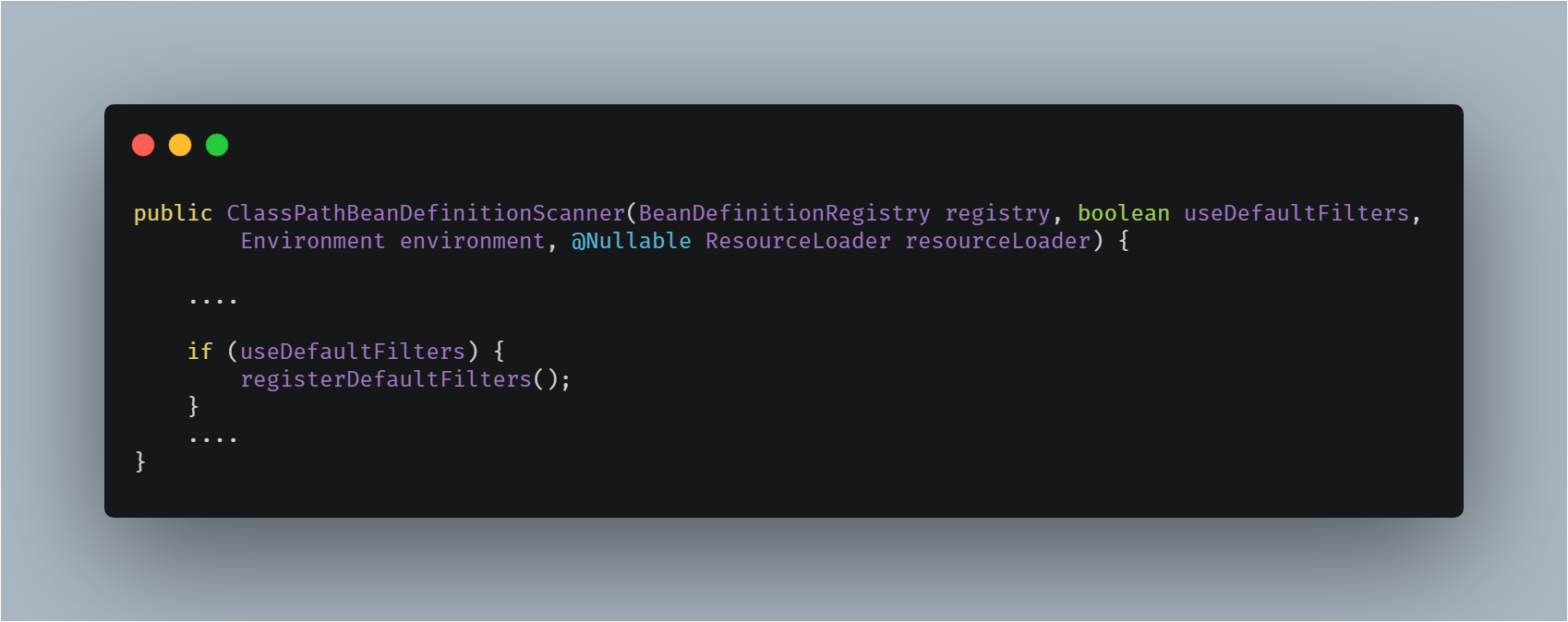
在 registerDefaultFilters 注册默认的过滤器,生成 excludeFilters与 includeFilters 初始值。
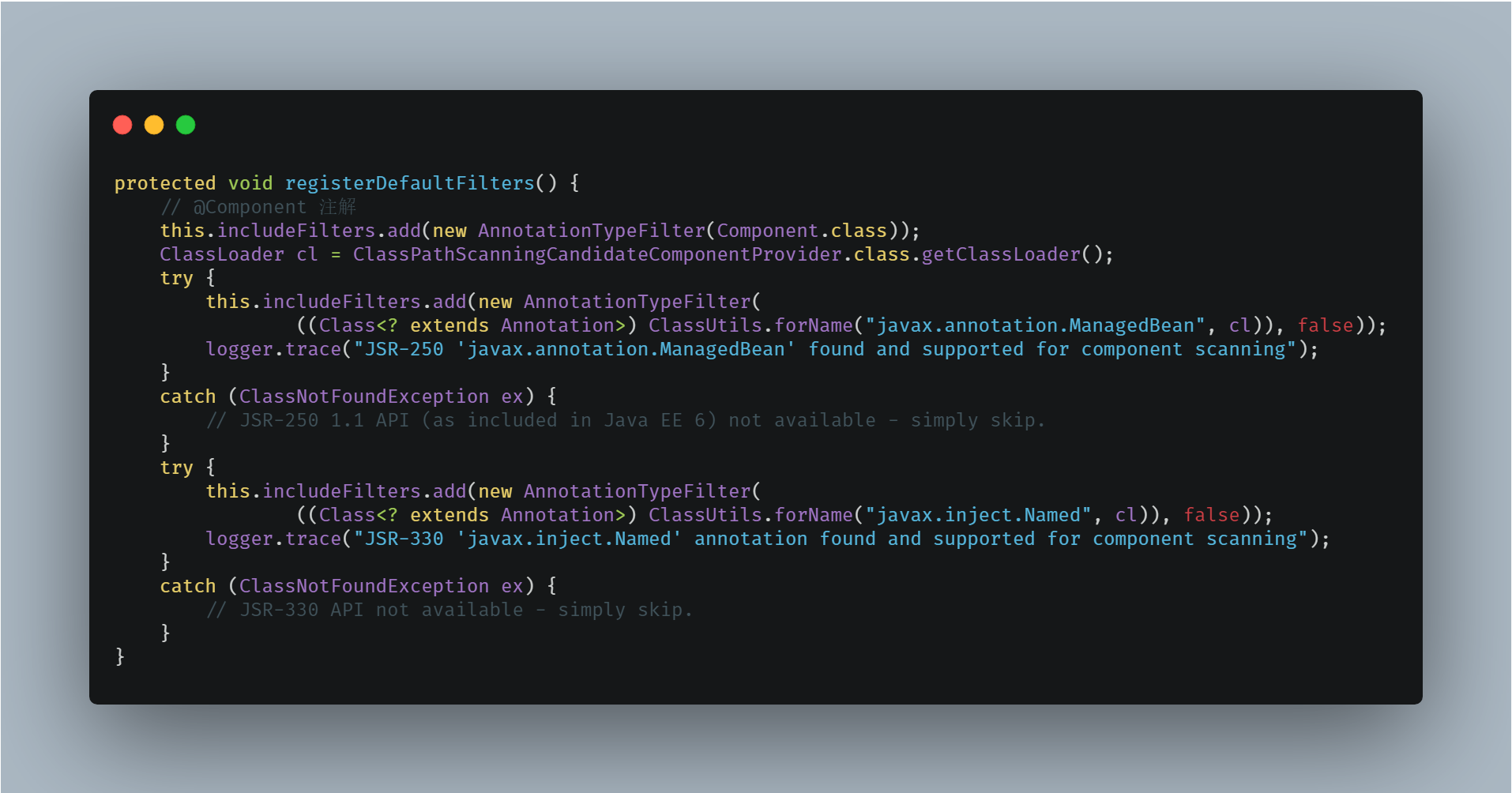
默认情况下,excludeFilters 将会是个空集,而 includeFilters 集合中增加一个包含@Component 类型信息的 AnnotationTypeFilter 实例,以及另外两个包含 Java EE 注解AnnotationTypeFilter 实例。
跳到 AnnotationTypeFilter#match 方法中。AnnotationTypeFilter 类图如下。
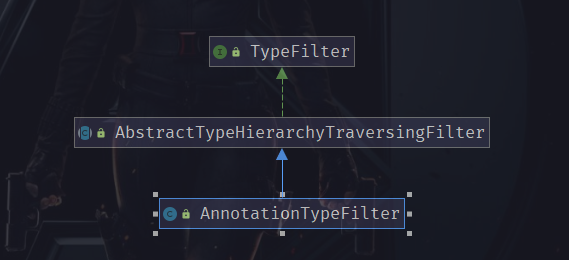
AnnotationTypeFilter#match 方法在抽象类 AbstractTypeHierarchyTraversingFilter中实现。
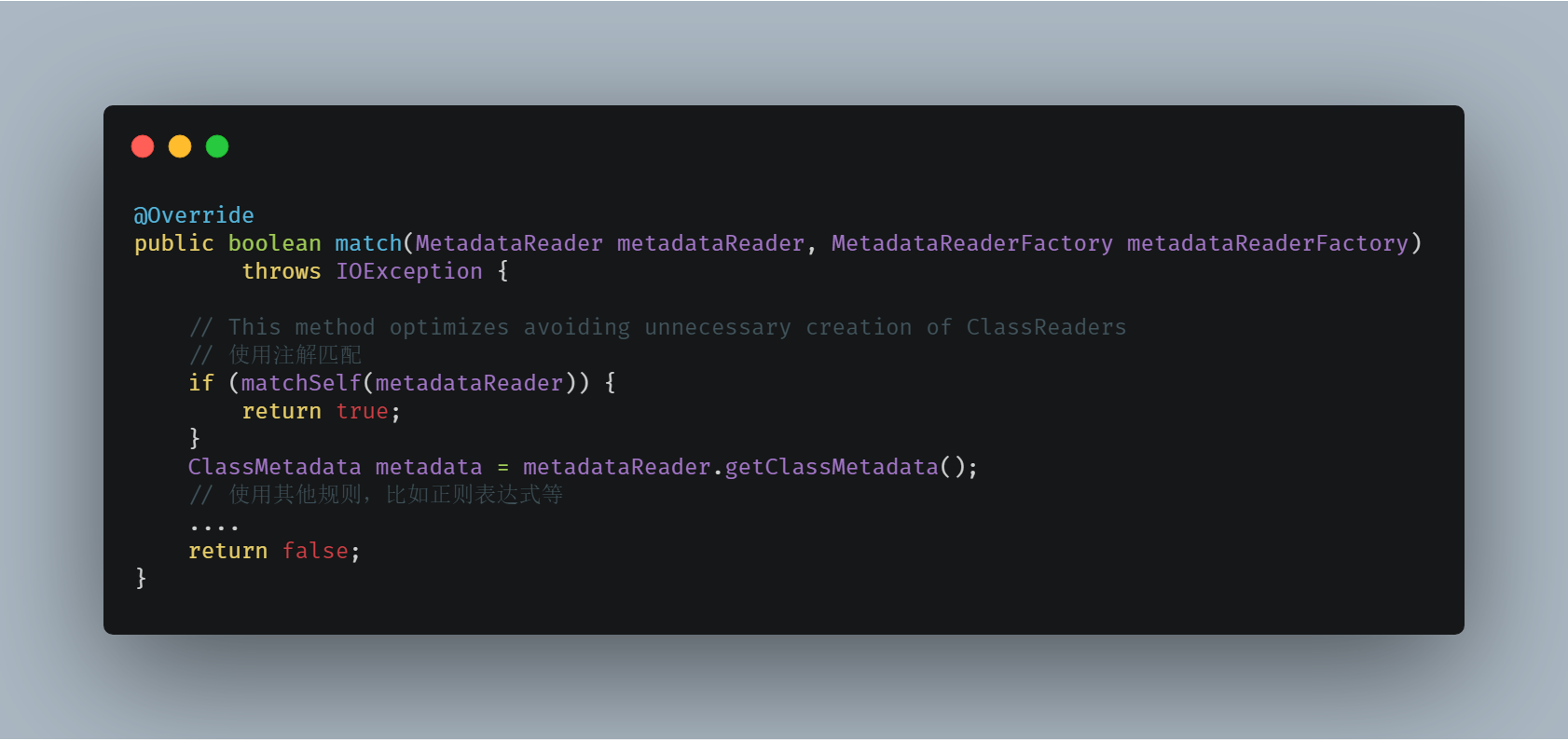
match 方法首先调用了 matchSelf,而该方法最终由 AnnotationTypeFilter 重写。

可以看到这里最终使用 AnnotationMetadata 方法判断是否存在指定注解。
源码分析就到此为止,下篇文章将会深入 AnnotationMetadata,查看其实如何获取元数据的。
帮助文档
Spring Annotation Programming Model
beans-stereotype-annotations
『Spring Boot 编程思想』






【推荐】国内首个AI IDE,深度理解中文开发场景,立即下载体验Trae
【推荐】编程新体验,更懂你的AI,立即体验豆包MarsCode编程助手
【推荐】抖音旗下AI助手豆包,你的智能百科全书,全免费不限次数
【推荐】轻量又高性能的 SSH 工具 IShell:AI 加持,快人一步
· 如何编写易于单元测试的代码
· 10年+ .NET Coder 心语,封装的思维:从隐藏、稳定开始理解其本质意义
· .NET Core 中如何实现缓存的预热?
· 从 HTTP 原因短语缺失研究 HTTP/2 和 HTTP/3 的设计差异
· AI与.NET技术实操系列:向量存储与相似性搜索在 .NET 中的实现
· 周边上新:园子的第一款马克杯温暖上架
· Open-Sora 2.0 重磅开源!
· 分享 3 个 .NET 开源的文件压缩处理库,助力快速实现文件压缩解压功能!
· Ollama——大语言模型本地部署的极速利器
· DeepSeek如何颠覆传统软件测试?测试工程师会被淘汰吗?